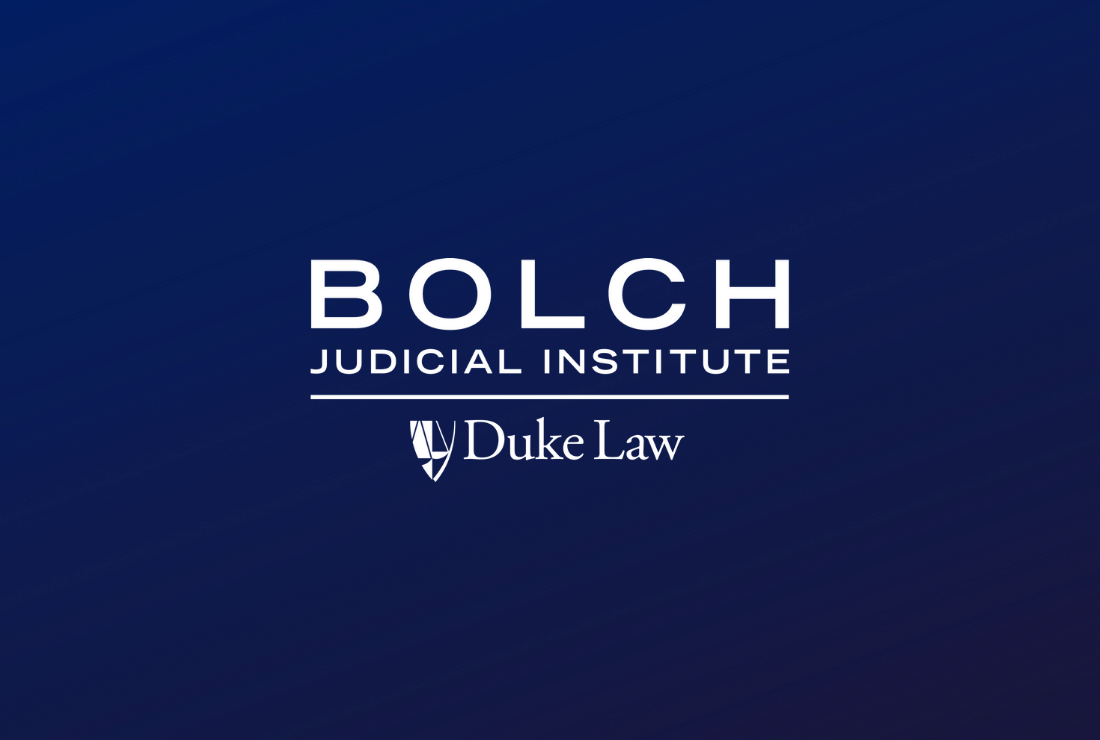Sept. 10, 2009 — In late September, a distinguished group of federal and state-court judges, legal scholars, and political scientists will gather at Duke Law School to consider how best to study and rate judicial performance.
The goal of the invitation-only, two-day workshop is to strengthen and broaden the theoretical foundation of empirical research into the quality and legitimacy of judicial decision making. Participants will include an equal number of jurists, theoretical scholars, and empiricists who will identify unanswered — or inadequately addressed — questions that can serve as the basis for discussion on how to advance empirical study of the judiciary.
Dean David F. Levi, former chief U.S. district judge for the Eastern District of California, is organizing the workshop, titled “Evaluating Judging, Judges and Judicial Institutions,” along with Professor G. Mitu Gulati of Duke Law and Professor David E. Klein of the Woodrow Wilson Department of Politics at the University of Virginia, both of whom have undertaken scholarly research on the subject. It is funded with a grant from the National Science Foundation.
“In professors Jack Knight and Mitu Gulati, we have two of the leading scholars who study judges and judicial institutions,” said Levi, pointing out that the two helped organize a conference at the Law School last February. “This conference and the grant supporting it will help us to further advance our interdisciplinary study of the judiciary. It builds on the conference we hosted last year, but will be different in that we have invited scholars with expertise in jurisprudence to attempt to determine whether different theories of judging could lead us to ask different empirical questions and lead to new understanding of judicial decision-making.”
The previous conference brought jurists and academics together to examine the often controversial efforts by social scientists and others to develop a body of empirical evidence on the way judges made decisions. Noting the traditional tendency of judges and academics to “think about the judiciary from their individual scholarly or practical perspectives,” Levi called for a lasting dialogue between the two groups.
Papers arising from the February conference on “Measuring Judges and Justice” can be found in the April 2009 issue of the Duke Law Journal (Vol. 58, No. 7).
